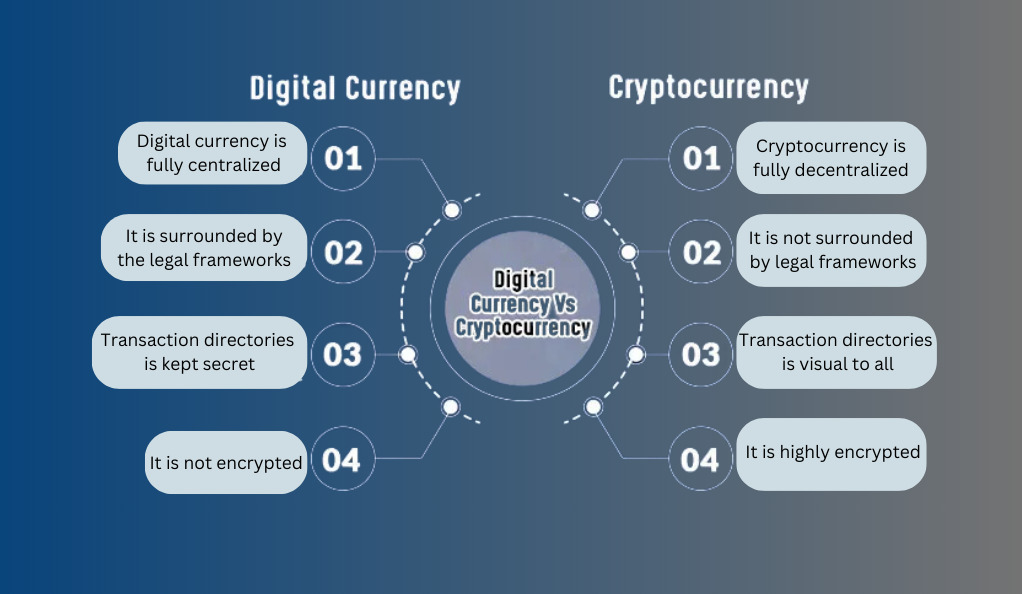Financial crimes, a term that often evokes images of shadowy figures and clandestine deals, have been a persistent challenge for economies worldwide. However, what’s less discussed but equally concerning is the role legal systems play in facilitating these activities. This section aims to provide a comprehensive overview of financial crimes and delve into the intricate ways legal frameworks can inadvertently aid these transgressions.
What are Financial Crimes?
At its core, financial crimes encompass a range of illegal activities that primarily involve money or the act of obtaining money illicitly. This includes, but is not limited to:
- Money Laundering: The process of making illegally-gained proceeds appear legal.
- Fraud: Deceptive practices intended to secure an unfair or unlawful financial gain.
- Bribery and Corruption: Offering, giving, receiving, or soliciting something of value to influence an action.
- Tax Evasion: The act of not paying taxes that are legally due.
The Role of Legal Systems
Legal systems, designed to maintain order and justice, can sometimes be manipulated to facilitate financial crimes. Here’s how:
- Legal Loopholes: Every legal system has its imperfections. Criminals often exploit gaps or ambiguities in laws to their advantage.
- Complex Financial Instruments: Some financial products, while legal, can be used to disguise illicit activities or to move money without detection.
- Lack of International Cooperation: With criminals operating globally, a lack of international legal cooperation can make prosecution difficult.
The Interplay Between Law and Crime
It’s essential to understand that while legal systems can inadvertently facilitate financial crimes, they are also the primary tool for combating them. As financial crimes evolve, so do laws and regulations. The challenge lies in staying ahead of the curve, predicting potential legal exploits, and ensuring that laws are comprehensive and devoid of loopholes.
Historical Context
Understanding the present requires a look back at the past. Financial crimes, though seemingly modern, have roots that trace back centuries. By examining notable instances of financial crimes throughout history and understanding how legal loopholes were exploited, we can better equip ourselves to prevent future transgressions.
A Brief History of Financial Crimes

- Ancient Times: Even in ancient civilizations, there were instances of tax evasion and embezzlement. For example, ancient Roman tax collectors were often accused of skimming off the top, and there were instances of grain fraud in ancient Egypt.
- Middle Ages: The Knights Templar, a medieval Catholic military order, is believed to have developed early forms of banking and, with it, the potential for financial misdeeds.
- Modern Era: The 20th century saw a surge in sophisticated financial crimes, from the stock market manipulations leading up to the 1929 crash to the savings and loan crisis of the 1980s.
Exploiting Legal Loopholes: Past and Present
Throughout history, financial criminals have been adept at using legal systems to their advantage:
- The South Sea Bubble (1720): A speculative bubble in Britain where the South Sea Company’s stock prices rose dramatically based on promises of trade expansion in South America. The company manipulated its stock price through misleading statements and bribery. The eventual crash led to significant financial reforms.
- Ponzi Schemes: Named after Charles Ponzi, who became infamous in the early 20th century, this scheme involves promising high returns with little risk to investors. New investment is used to pay returns to earlier investors, creating the illusion of a profitable business. Such schemes exploit legal gaps in investment regulations.
- Offshore Tax Havens: Modern financial criminals often use offshore accounts in countries with strict bank secrecy laws to hide their assets. These havens, while legal, can facilitate tax evasion and money laundering.
Lessons from the Past
Historical instances of financial crimes offer valuable lessons:
- Regulation is Key: After every major financial scandal, there’s usually a push for stricter regulations. For instance, the Enron scandal led to the Sarbanes-Oxley Act in the U.S., which increased transparency in financial reporting by corporations.
- International Cooperation: As financial systems become more interconnected, international cooperation becomes crucial. Joint efforts, like the establishment of the Financial Action Task Force (FATF), aim to combat money laundering on a global scale.
- Public Awareness: Educating the public about financial crimes can act as a deterrent. An informed public is less likely to fall for scams and can exert pressure on authorities to act against wrongdoers.
Mechanisms of Legal Facilitation
The intricate web of financial crimes often thrives on the mechanisms that the legal system inadvertently provides. These mechanisms, while designed for legitimate purposes, can be manipulated by those with malicious intent.
Shell Companies and Anonymous Ownership
- Definition: A shell company is a business entity without active business operations or significant assets. They are not inherently illegal and can have legitimate uses, such as holding assets or facilitating mergers.
- Exploitation: Criminals use shell companies to hide money, evade taxes, or launder illicit funds. By masking the true owners, these entities can move vast sums of money discreetly.
Banking Secrecy and Tax Havens
- Banking Secrecy: Some jurisdictions offer high levels of secrecy, making it difficult for foreign authorities to access account details.
- Tax Havens: Countries with low or zero tax rates, attracting wealthy individuals or corporations to park their assets and reduce their tax liabilities.
- Exploitation: These jurisdictions can be used to hide assets, evade taxes, or launder money. The secrecy they offer makes detection and prosecution challenging.
Weak Regulatory Frameworks and Enforcement
- Inadequate Regulations: Some countries have lax financial regulations, making them attractive for illicit financial activities.
- Poor Enforcement: Even with regulations in place, weak enforcement can render them ineffective.
- Exploitation: Criminals target these jurisdictions to carry out their operations with minimal risk of detection or prosecution.
Digital Currencies and Cryptocurrencies

- Definition: Digital currencies, especially cryptocurrencies like Bitcoin, are decentralized digital assets.
- Exploitation: Their decentralized nature and the anonymity they can provide make them attractive for illicit activities like money laundering or illegal trade.
Impacts on Global Economy
Financial crimes, while often perceived as isolated incidents, can have ripple effects that impact the global economy. From destabilizing financial institutions to eroding public trust, the consequences are multifaceted and far-reaching.
Economic Implications of Unchecked Financial Crimes
- Loss of Revenue: Tax evasion and fraud can lead to significant losses in government revenue, affecting public services and infrastructure development.
- Market Instability: Large-scale financial crimes can destabilize financial markets, leading to recessions or economic downturns. For instance, the subprime mortgage crisis of 2008 had roots in deceptive lending practices.
- Increased Costs: Financial institutions may increase fees and charges to cover the costs of fraud prevention, indirectly affecting consumers.
Erosion of Public Trust
- Distrust in Financial Institutions: High-profile financial scandals can erode public trust in banks and financial institutions, leading to reduced investments and withdrawals.
- Loss of Faith in Governance: When governments are perceived as unable or unwilling to tackle financial crimes, it can lead to public disillusionment and political instability.
Inequality and Social Implications
- Wealth Disparity: Illicit financial flows, especially from developing countries, can exacerbate wealth disparities. The rich get richer by evading taxes or moving money offshore, while the poor bear the brunt of reduced public services.
- Social Unrest: In extreme cases, perceived economic injustices stemming from financial crimes can lead to protests, social unrest, or even revolutions.
Impact on International Relations
- Strained Diplomatic Ties: Countries that harbor financial criminals or facilitate money laundering can face diplomatic repercussions, including sanctions.
- Trade Implications: Countries perceived as high-risk due to prevalent financial crimes might face trade restrictions or reduced foreign investments.
Combatting Financial Crimes

Addressing the multifaceted challenge of financial crimes requires a comprehensive approach that combines regulatory reforms, technological advancements, and international cooperation.
International Cooperation and Treaties
- Overview: As financial crimes often transcend borders, international cooperation is paramount in tackling them effectively.
- Key Initiatives:
- Financial Action Task Force (FATF): An inter-governmental body established to set standards and promote effective implementation of measures to combat money laundering, terrorist financing, and other related threats.
- Tax Information Exchange Agreements (TIEAs): Bilateral agreements that allow for the exchange of tax-related information between countries, helping combat tax evasion.
- Impact: Enhanced information sharing, joint investigations, and coordinated actions against culprits.
The Role of Whistleblowers and Investigative Journalism
- Overview: Whistleblowers and investigative journalists play a crucial role in exposing financial crimes and holding perpetrators accountable.
- Key Examples:
- Edward Snowden’s revelations about global surveillance.
- The role of investigative journalists in the Panama Papers leak.
- Impact: Increased public awareness, policy reforms, and legal actions against wrongdoers.
Technological Solutions and AI in Detecting Financial Crimes
- Overview: Advanced technologies, especially Artificial Intelligence (AI), are increasingly being used to detect and prevent financial crimes.
- Key Initiatives:
- Machine Learning Algorithms: These can analyze vast amounts of transaction data to detect unusual patterns indicative of fraudulent activities.
- Blockchain Technology: Provides a transparent and tamper-proof ledger, making illicit financial activities harder to conceal.
- Impact: Faster detection of suspicious activities, reduced reliance on manual checks, and enhanced fraud prevention.
Strengthening Regulatory Frameworks
- Overview: Robust regulatory frameworks are essential to deter financial crimes and ensure swift action against violators.
- Key Reforms:
- Stricter Know Your Customer (KYC) and Anti-Money Laundering (AML) regulations.
- Enhanced oversight of offshore financial centers and tax havens.
- Impact: Reduced avenues for financial crimes, increased accountability, and enhanced public trust in financial systems.
Future Outlook
As we navigate the complexities of the global financial landscape, it’s essential to anticipate the evolving nature of financial crimes and the challenges they present. The future holds both risks and opportunities in the fight against these illicit activities.
Predictions for the Future of Financial Crimes

- Digital Evolution: As the world becomes more digitally interconnected, cybercrimes, digital fraud, and online money laundering activities are expected to rise.
- Decentralized Finance (DeFi): The rapid growth of DeFi platforms may offer new avenues for financial crimes unless adequately regulated.
- Increased Use of Cryptocurrencies: While cryptocurrencies offer numerous benefits, they also present challenges in terms of regulation and oversight, potentially facilitating illicit financial flows.
Legal Reforms and Their Potential Impact
- Global Regulatory Convergence: Efforts are underway to harmonize financial regulations across countries, making it harder for criminals to exploit jurisdictional differences.
- Stricter Oversight of Emerging Technologies: As new financial technologies emerge, regulatory bodies are expected to enhance their oversight to prevent misuse.
- Empowering Regulatory Bodies: There’s a growing consensus on the need to equip regulatory bodies with more resources and powers to tackle financial crimes effectively.
The Role of Technology in Shaping the Future
- Advanced AI and Machine Learning: These technologies will play an even more significant role in detecting and preventing financial crimes, analyzing vast datasets in real-time.
- Blockchain and Transparency: The immutable nature of blockchain can offer greater transparency in financial transactions, making illicit activities easier to trace.
- Enhanced Cybersecurity Measures: As cyber threats evolve, there will be a continuous need for advanced cybersecurity solutions to protect financial data and systems.
Conclusion
The intricate world of financial crimes, with its myriad challenges and implications, underscores the importance of vigilance, innovation, and collaboration. While the journey is fraught with challenges, the collective efforts of nations, institutions, and individuals worldwide offer hope. By understanding the past, addressing the present, and anticipating the future, we can forge a path towards a more transparent, just, and secure financial ecosystem. The battle against financial crimes is ongoing, but with determination, innovation, and cooperation, it’s a battle we can win.








